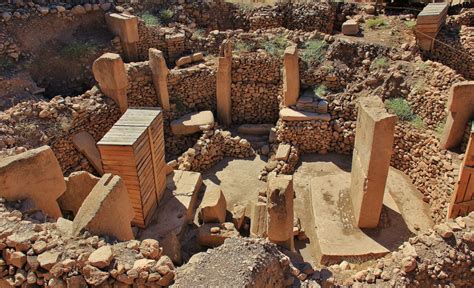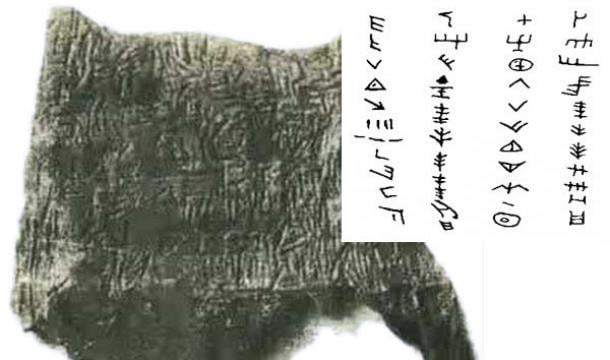
Gobekli Tepe, “Potbelly Hill”
We’ve been talking a lot, lately, about how our civilization might suddenly and shockingly collapse–like, if the people don’t obey all the commands of the government–but I think a more interesting question is how civilization ever came to be.
Supposedly we were mere hunter-gatherers for untold thousands of years. Okay. Then how did we come to invent civilization? If it’s “wired in,” why did it take so long? And if it’s not, why did it ever get started at all?
“Potbelly Hill,” in Turkey, shocked scientists with its great age, apparently some ten thousand years old, if not more. Monumental sculpture, well-constructed stone walls–all before the appropriate tools, supposedly, were invented. And then the people who used it… buried it, which preserved it from the elements and allowed us to dig it up again. We don’t know who they were, why they built it, how they built it, or why they buried it.
There are other sites almost as old–Jericho, Catal Huyuk, just to name two–where it seems civilization was well on its way to emerging from a primitive culture. We are badly hampered by a lack of inscriptions at those sites. Not that we could read them, if we had them.
The Bible teaches us that God twice overthrew civilization in our world: once by Noah’s Flood, and again by confounding their language when men tried to build a great tower reaching up to heaven. Reputable Bible Scholars Inc. tell us these are only fables, none of it ever really happened. Like they know.
But what if sites like Potbelly Hill, Jericho, and Catal Huyuk, and baffling remnants like the Dispilio Tablet and the Vinca Alphabet–both of them way too old to be writing, but there they are–what if these are not evidence of civilization emerging, but of civilization re-emerging from first destruction, then confusion? What if these are evidence of people trying to claw their way back to a way of life known to their ancestors but imperfectly remembered?
If our own civilization were utterly destroyed, how long would it take the survivors and their descendants to rebuild? How much knowledge and know-how, in the meantime, would be lost to them? And very much would depend on who survived: it isn’t everybody who knows how things work, or can explain it to others. And as the centuries roll on, so much of what people used to know gets lost. How much got lost without leaving a trace of it for us to study?
The earth is the Lord’s, and we are made in His image. We have the capacity to create a civilization. Scripture tells us we abused it and were punished for that.
As we discover older and older evidence of nameless, forgotten, extinct civilizations, is it wise to write off the Bible? Because it stores information that we, with our limited knowledge of the past, refuse to recognize as information?
Someday God will say to us, “I told you, but you wouldn’t listen.”
Like this:
Like Loading...

